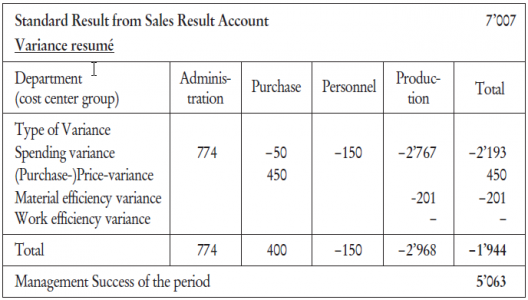Management result account
From ControllingWiki
IGC-DEFINITION
Management result account / [[:de:Management-Erfolgsrechnung|Managementerfolgsrechnung
The management result is the target figure for the whole operative activity of a business. It is calculated by adding the standard result and the balance of the variance resumé. In the variance resumé, which is a component of cost accounting, all variances that are not contained in the sales result account, are collated according to causes and areas of responsibility. Thus the management result is collated from the sales result account stepwise as a multi-step (stepwise) contribution account (standard result) and from cost accounting. In the planning phase management result and standard result are identical since there are no variances yet from the cost accounting system to be taken into consideration.
To be able to compare the management result to the financial result (which observes commercial and fiscal regulations) a reconciliation bridge is required. This bridge shows all those entries, which are valuated differently in management-oriented accounting than in the balance sheet. If, after the comparison of actual revenues and the actual costs, you get a better actual result than your planned target result, your management result for this period is positive. The management result is therefore the operating result after deducting the target profit.
from: IGC-Controller-Wörterbuch, International Group of Controlling (Hrsg.)

